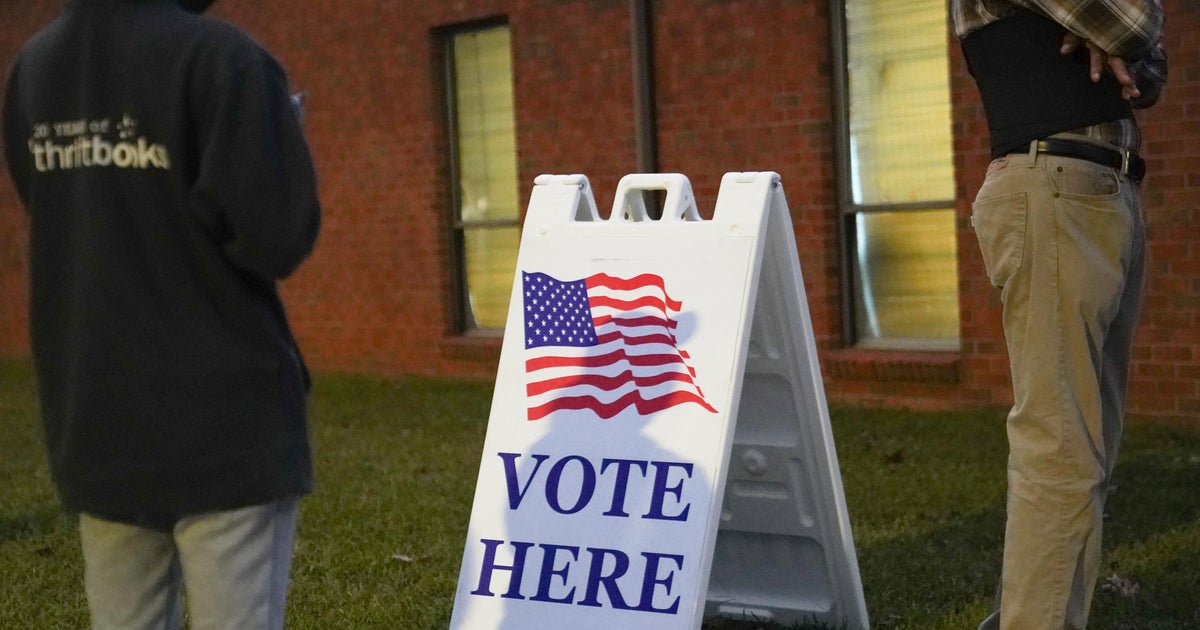Cruz Victory Shows Tea Party Staying Power
WASHINGTON (AP) - Ted Cruz's Senate primary victory in Texas will provide a boost for tea party-backed, no-compromise conservatives in Congress.
His all-but-sure win in November will increase the number of tea party-aligned senators to six, and as many as seven more could win election. That will ensure a bigger impact on both politics and policy on Capitol Hill, even if Democrats manage to retain a Senate majority and the White House.
Dozens of tea party-supported candidates won House seats two years ago, but only four were elected to the Senate: Marco Rubio of Florida, Ron Johnson of Wisconsin, Rand Paul of Kentucky and Mike Lee of Utah. They joined South Carolina Sen. Jim DeMint, an ideological godfather of a movement born in the aftermath of Congress enacting President Barack Obama's health care overhaul two years ago.
As a result of those small numbers, the tea party's impact in the Senate has been less than in the House — for both parties.
Republicans speak optimistically of possibly taking Senate control — though Cruz will take a safely Republican seat — and most GOP senators tout their own conservative credentials. But Senate Republican leader Mitch McConnell has generally not had to contend with conservative insurrections, while House Speaker John Boehner regularly faces fierce resistance from blocks of conservatives at the mere mention of compromise with Democrats.
Cruz defeated the establishment favorite, Texas Lt. Gov. David Dewhurst, on Tuesday after spending his entire campaign aligning himself with the tea party. He was endorsed by DeMint more than a year ago.
"We are witnessing a great awakening," he said of his victory, presenting himself as part of a new generation of conservatism.
With just three months until the general election, however, the 2012 campaign season has been anything but a tea party sweep. The movement couldn't settle on an opponent to Mitt Romney for the Republican presidential nomination, although more than half a dozen auditioned.
And it came up short in a bid to unseat veteran Republican Sen. Orrin Hatch of Utah just two years after Lee pulled off a stunning upset in the state. At least a handful of the tea party-backed candidates in the House also face tough re-election fights this fall.
But Cruz's victory does add to the momentum of tea-party-sponsored Richard Mourdock's upset victory in Indiana's Republican primary over Richard Lugar, a six-term senator who partnered with Democrats on foreign policy. .
Democrats quickly predicted that Cruz's arrival would create havoc for McConnell. Sen. Patty Murray, the head of the Senate Democrats' campaign arm, virtually conceded he'll win in November before musing Wednesday on Cruz's impact.
"I think the bigger issue there is that Mitch McConnell is now going to have a potentially much more Tea Party-oriented caucus, and we have all seen the damage that has done to our ability to govern, to find compromise, to move this country forward in a positive direction, she said. "It's more of their problem than ours."
A stronger tea party presence in the Senate could have a significant impact even before the 2012 election winners take office. Just the prospect could tip the scales in a lame duck post-election session on tax cuts and possible military spending cuts.
Expect an even bigger impact in February when the government approaches the $16.4 trillion ceiling on federal debt. Raising it again is anathema to tea partyers.
Republicans are already welcoming Cruz's arrival.
"People are mad at Washington, D.C., they're mad at what they perceive to be the establishment and they want some change," said Sen. John Cornyn, a fellow Texan and head of the Republicans' Senate campaign arm. "I certainly understand why."
Just how much the tea party's impact grows in the Senate depends on the outcome of seven other races.
In Indiana, Mourdock still has to defeat Democratic Rep. Joe Donnelly in November.Nebraska State Sen. Deb Fischer ran as a strict conservative to emerge from a crowded primary and will take on former Sen. Bob Kerrey in a race to replace Democratic Sen. Ben Nelson.
The three candidates in Missouri's GOP primary have all brandished their deep conservative credentials as they compete to take on embattled Sen. Claire McCaskill. And several of the candidates in Wisconsin's hotly contested Republican Senate primary later this month have positioned themselves as tea party alternatives to former GOP Gov. Tommy Thompson. The winner will face liberal Democratic Rep. Tammy Baldwin in November.
In addition, Rep. Connie Mack, the strong favorite in a Republican primary to take on Sen. Bill Nelson in Florida, has expressed support for the tea party movement, as have Josh Mandel, the Republican-nominated challenger to Democratic Sen. Sherrod Brown in Ohio. Former Sen. George Allen has picked up some tea party support in what will be a tight Senate race in Virginia against former Democratic Gov. Tim Kaine.
(© Copyright 2012 The Associated Press. All Rights Reserved. This material may not be published, broadcast, rewritten or redistributed.)
Also Check Out:






